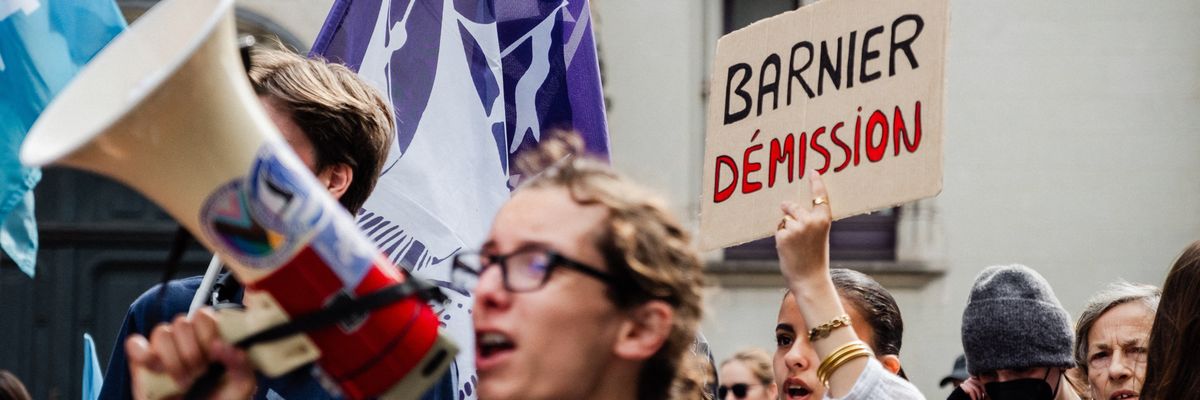In cities and towns across France on Saturday, more than 100,000 people answered the call from the left-wing political party La France Insoumise for mass protests against President Emmanuel Macron's selection of a right-wing prime minister.
The demonstrations came two months after the left coalition won more seats than Macron's centrist coalition or the far-right Rassemblement National (RN) in the National Assembly and two days after the president announced that Michel Barnier, the right-wing former Brexit negotiator for the European Union, would lead the government.
The selection was made after negotiations between Macron and RN leader Marine Le Pen, leading protesters on Saturday to accuse the president of a "denial of democracy."
"Expressing one's vote will be useless as long as Macron is in power," a protester named Manon Bonijol told Al Jazeera.
A poll released on Friday by Elabe showed that 74% of French people believed Macron had disregarded the results of July's snap parliamentary elections, and 55% said the election had been "stolen."
Jean-Luc Mélenchon, the leader of La France Insoumise (LFI), or France Unbowed, also accused Macron of "stealing the election" in a speech at the demonstration in Paris on Saturday.
"Democracy is not just the art of accepting you have won but the humility to accept you have lost," Mélenchon told protesters. "I call you for what will be a long battle."
He added that "the French people are in rebellion. They have entered into revolution."
Macron's centrist coalition won about 160 assembly seats out of 577 in July, compared to the left coalition's 180. The RN won about 140.
Barnier's Les Républicains (LR) party won fewer than 50 parliamentary seats. French presidents have generally named prime ministers, who oversee domestic policy, from the party with the most seats in the National Assembly.
Barnier signaled on Friday that he would largely defend Macron's pro-business policies and could unveil stricter anti-immigration reforms. Macron has enraged French workers and the left with policies including a retirement age hike last year.
Protests also took place in cities including Nantes, Nice, Montpellier, Marseilles, and Strasbourg.
All four left-wing parties within the Nouveau Front Populaire (NFP) coalition have announced plans to vote for a motion of no confidence against Barnier.
The RN has not committed to backing Barnier's government yet and leaders have said they are waiting to see what policies he presents to the National Assembly before deciding how to proceed in a no confidence vote.



